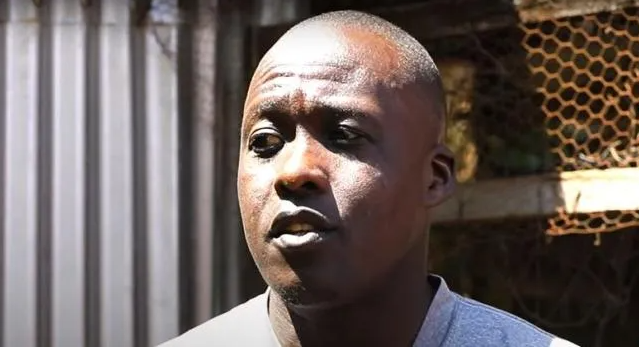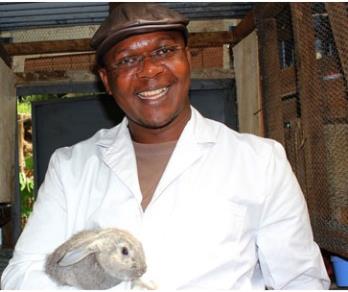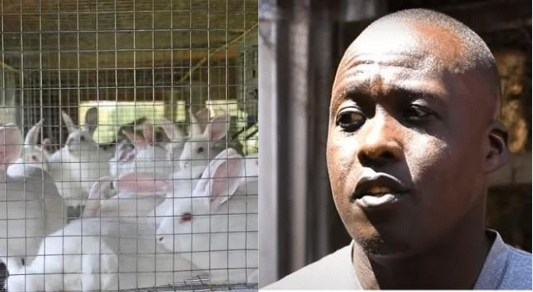Many individuals raise rabbits as pets or for their expensive meat without realizing how much money their pee waste could bring in each month.
One of the few farmers in Kenya, Charles Owiti, has recognized the value in the sale of rabbit waste and now relies on it for his livelihood.

Crop producers who use it to increase their farm yields are slowly but surely increasing the usage of rabbit urine to enhance soils.
According to Owiti, a rabbit keeper, urine is caught by a wire mesh when it passes through iron sheets beneath the rabbit construction.
“I have a trough at the end of the iron sheets where I rear my rabbits to avoid urine spillage and lead it to a collecting jerrycan,” he commented.
Currently, he charges Ksh 100 per litre, and he can fill 20 jerrycans worth of liquid, which brings in Ksh 2000 each day.

Because of its strong stench, rabbit urine is an organic pesticide that deters nuisance insects like mites and aphids.
“The urine is fancied by crop farmers and many say they get high-quality yields because the urine helps in enriching the soil,” he states.
He says, in maintaining the steady supply of waste, the production has to start first in the feeding stage.

Something Owiti ensures by feeding the rabbits with leafy vegetables to produce more urine.
“Rabbit urine depends on what it is feeding on. I feed my rabbits on leafy cabbages, so with that, they can produce more urine because it has a lot of water content,” he notes.
He adds that rabbit adults produce more urine and urges farmers to consider using rabbit urine for high yields.
Another rabbit Success story; Meet Moses Mutua, CEO Rabbit Republic (Kenya)
Popularly known as ‘Mr. Rabbit’ in Kenya, Moses Mutua grew up in a poor family and couldn’t further his education because his family couldn’t afford to pay for it.
Although he always wanted to become a policeman, he never reached that dream. Instead he got a job as a security guard and worked at it for five years before he got fired.

Before he became Mr. Rabbit, Moses had already tried greenhouse farming, fish farming, organic farming, but settled on rabbits because they are the most lucrative domesticated animals in the world in terms of time, space utilisation and profit margins.
Moses learned everything about rabbit farming from the internet (by using Google) and finally started a small rabbit farm with just six rabbits. That’s how his company, Rabbit Republic, was born.
Today, Rabbit Republic has a turnover that’s more than Sh10 million (about $100,000) and slaughters about 2,000 rabbits every month.
His business has attracted investors and Moses is currently developing a five-acre farm that will breed about 30,000 rabbits. The video below shows Mr. Rabbit in action on his farm as he explains the profitability of the rabbit farming business and why more entrepreneurs should seriously consider it.
Here is a video on how to collect Rabbit urine:








